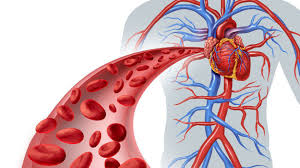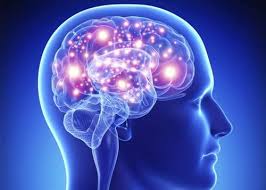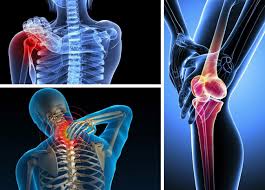Vitamin B6, also known as pyridoxine, is an important part of the B vitamins. Vitamin B6 and other B vitamins are essential for a variety of mental and physical functions in all people. The benefits of vitamin B6 are quite impressive among the B vitamins. Without vitamin B6, metabolism, liver function, nerve function do not perform well and the body’s energy decreases. Many organs in the body will be affected when there is a lack of vitamin B6. Here are the great benefits of vitamin B6:
1. Stabilizes Blood Vessel Health
Without enough vitamin B6, your body cannot maintain stable levels of homocysteine in the blood. Too much protein in your diet can increase homocysteine levels, which can lead to increased inflammation in the body. Chronic inflammation can be a risk factor for vascular disease and heart disease. A buildup of homocysteine can damage the lining of blood vessels and promote the buildup of plaque. There is evidence that vitamin B6 combined with folate significantly reduces homocysteine levels in the body.

Vitamin B6 helps blood circulation
2. Helps prevent PMS
PMS can cause a number of unpleasant symptoms, mood swings, and other symptoms. Some studies show that negative symptoms occur when there is not enough vitamin B6 in the body or at least not enough of this vitamin during the premenstrual period. Increasing vitamin B6 intake may help treat PMS.
3. Improves Brain Function
One of the many benefits of vitamin B6 is that it supports brain function and development. Some studies have found that vitamin B6 deficiency may be linked to dementia, Alzheimer’s disease, and cognitive decline. Vitamin B6 helps control homocysteine levels and prevents inflammation. Vitamin B6 also triggers the release of norepinephrine and serotonin, which help control energy, mood, and concentration. These hormones can reduce anxiety and fatigue, which will have a direct impact not only on your mood but also on your overall health.

support brain function
4. Boosts the Immune System
Vitamin B6 helps to rejuvenate the immune system so that it can function more effectively. With a stronger immune system, you can fight off certain infections. A deficiency in vitamin B6 makes it difficult to fight off infections.
5. Helps prevent anemia
Your blood is red because it contains hemoglobin, and vitamin B6 is essential for making hemoglobin. Without enough hemoglobin, red blood cells cannot carry oxygen throughout the body. If you have symptoms such as aches and pains, increasing your vitamin B6 intake will help reduce these symptoms. 6. Keep your eyes healthy
Any nutritional deficiency can directly affect your eyes. Some studies have shown that not having enough vitamin B6 can cause eye diseases, including cataracts and age-related macular degeneration. When combined with folate, vitamin B6 also helps prevent vision loss and other common eye disorders.
7. Reduces Arthritis Symptoms
Rheumatoid arthritis symptoms can become worse if there is not enough vitamin B6 in the body. Some studies have found that people with arthritis need more vitamin B6 to prevent symptoms such as joint pain and muscle pain. This vitamin helps reduce chronic inflammation and prevent or reduce arthritis symptoms.

prevent osteoarthritis
8. Treating high blood pressure
Vitamin B6 keeps your blood vessels, heart healthy and improves blood circulation, which in turn will also reduce the risk of high blood pressure. Vitamin B6 also reduces blood cholesterol levels, allowing you to maintain healthy blood pressure levels.
9. Preventing kidney dysfunction
Vitamin B6 helps improve cardiovascular health by controlling the amount of fat in the body and especially around the heart. At the same time, vitamin B6 prevents the formation of kidney stones, thus keeping the kidneys healthy. The daily requirement of vitamin B6 by age is as follows: Infants-6 months: 0.1 mg; 7 months-1 year: 0.3 mg; 1-3 years: 0.5 mg; 4-8 years: 0.6 mg; 9-13 years: 1 mg; 14-18 years (boys): 1.3 mg; 14-18 years (girls): 1.2mg; 19-50 years (both men and women): 1.3mg; 51 years and older (men): 1.7mg; 51 years and older (women): 1.5mg; Breastfeeding women: 1.9mg; Pregnant women: 1.9mg. You do not need to take a vitamin B6 supplement if you eat a balanced diet. A balanced diet usually provides you with 1.3mg of vitamin B6 a day, which is your daily requirement if you are under 50.
Older adults may not get enough vitamin B6 from their diet, especially those who live alone and do not cook regularly for themselves. They should have their vitamin B6 levels checked regularly and may even consider taking a vitamin B6 supplement to ensure they get enough of this vitamin.
Some people can get too much of this vitamin, especially those who consume too many energy drinks. Your body cannot store excess vitamin B6 for later use, so your kidneys have to work to remove it from your body. This puts unnecessary stress on your kidneys, which is why it is important to make sure you do not get too much vitamin B6 on a daily basis.





